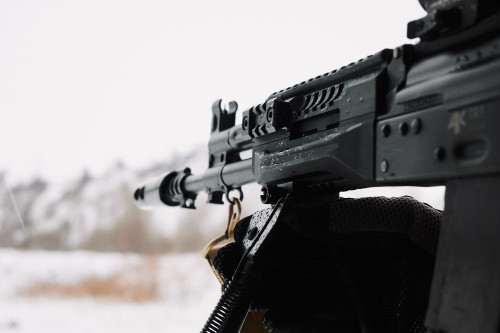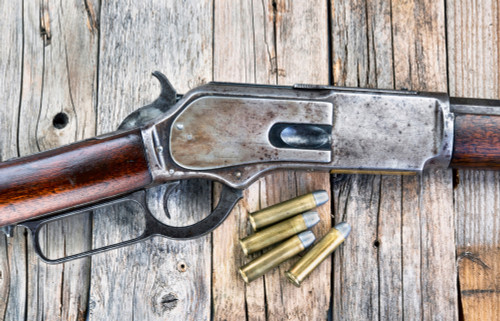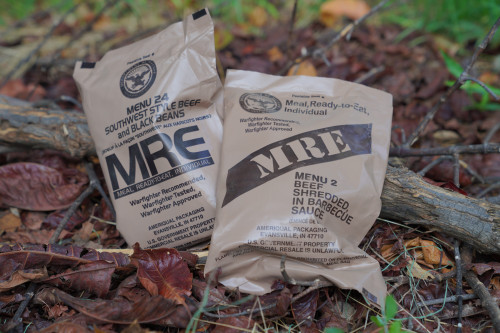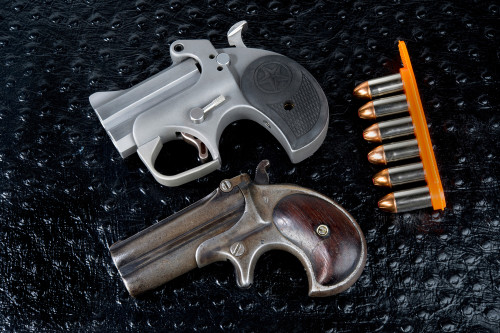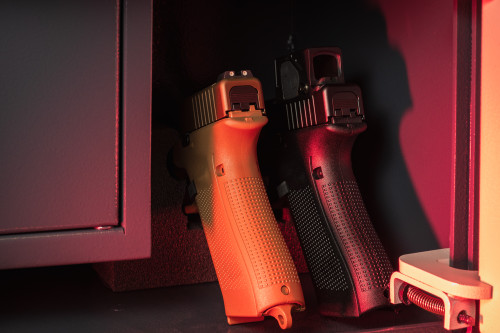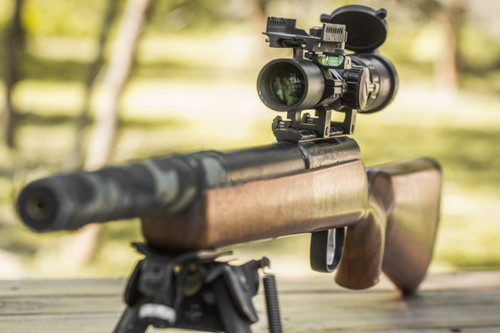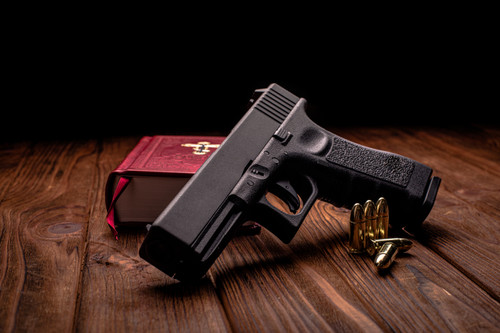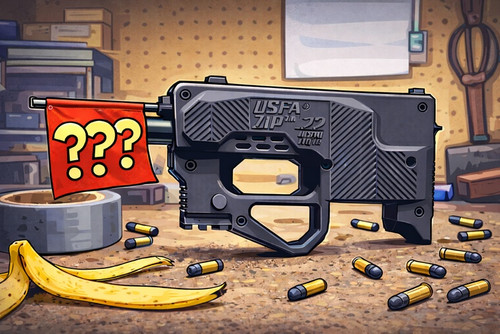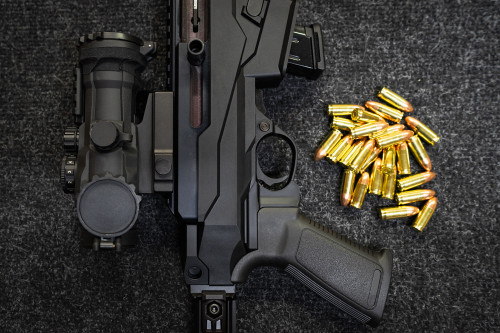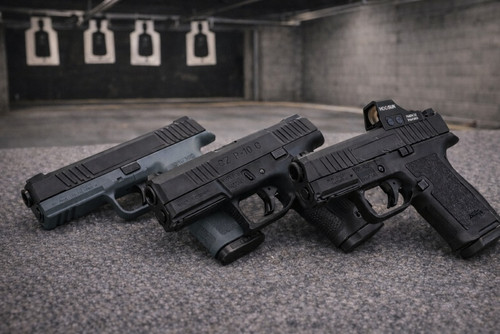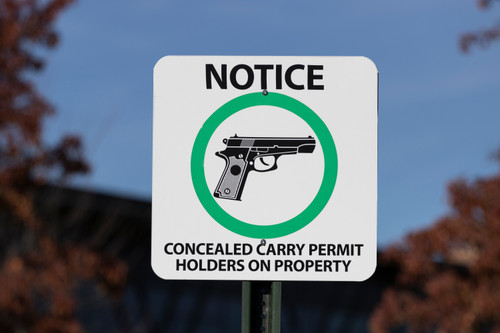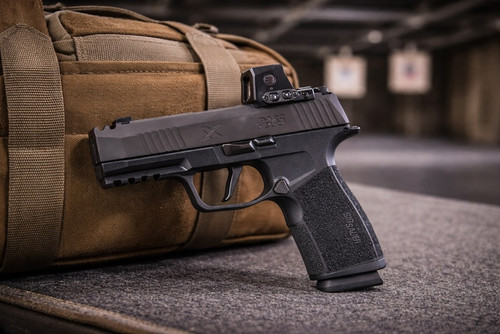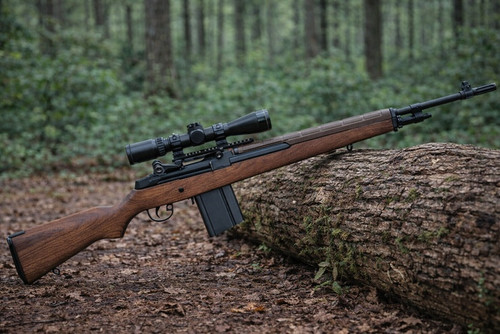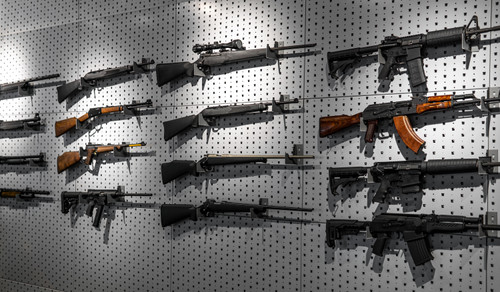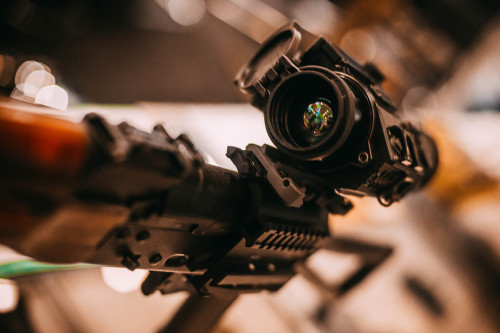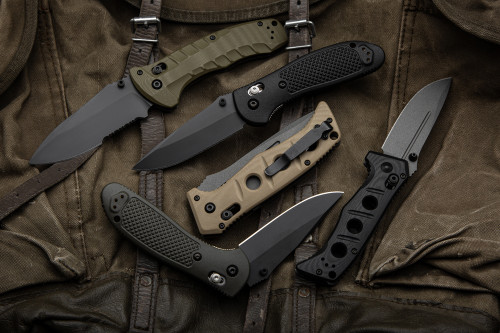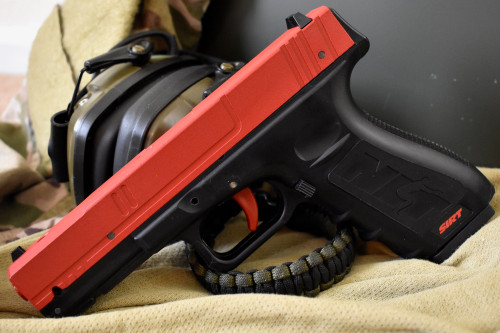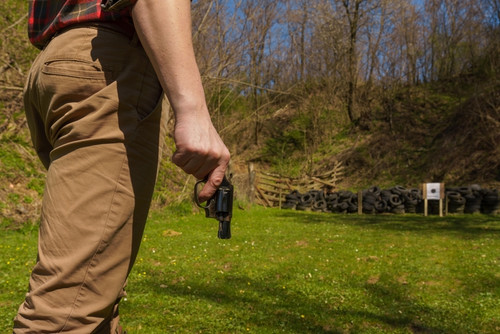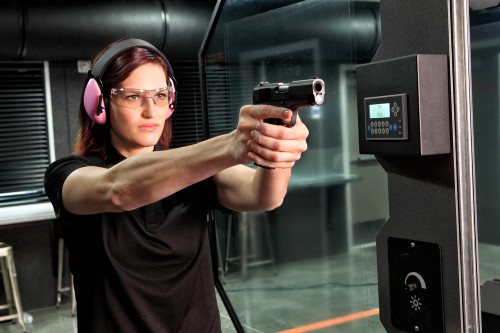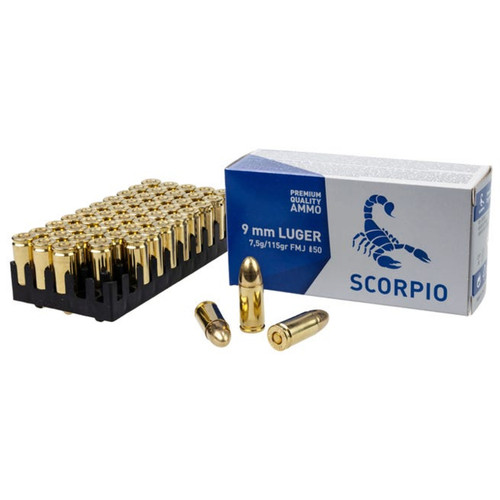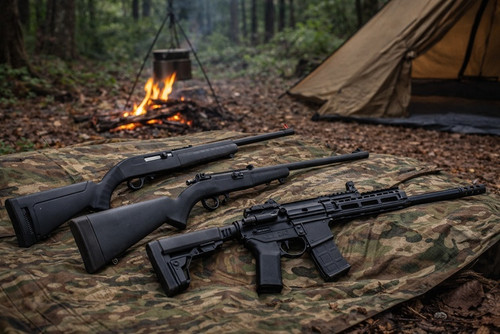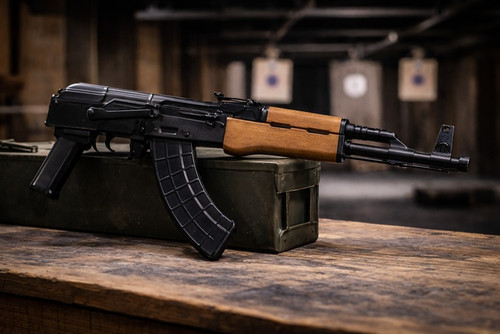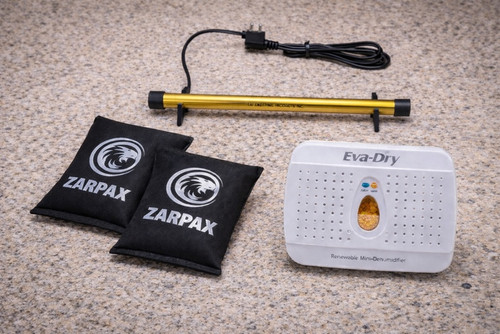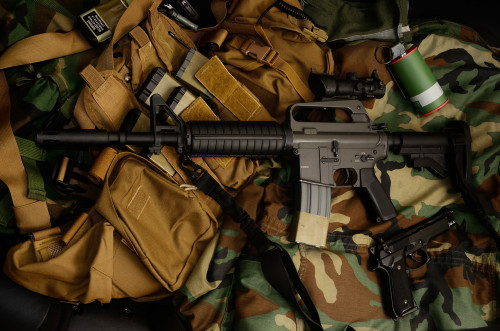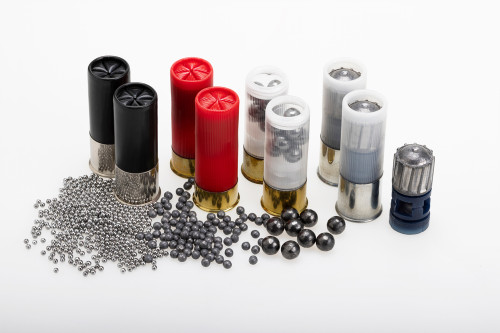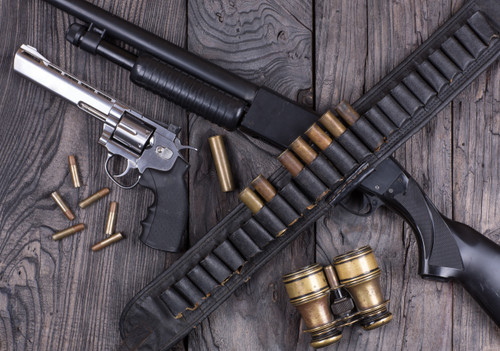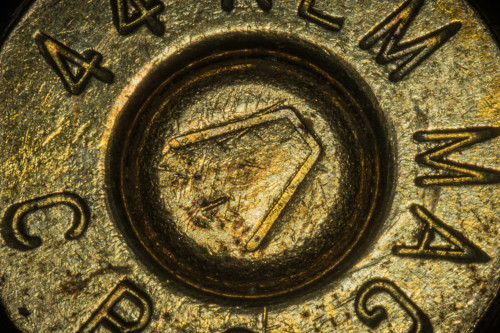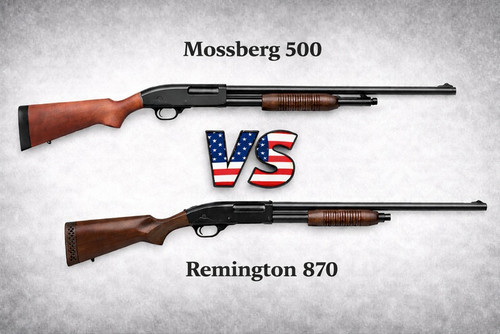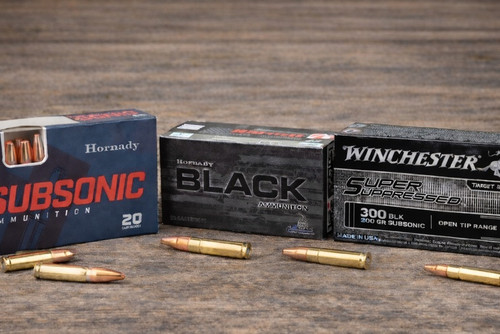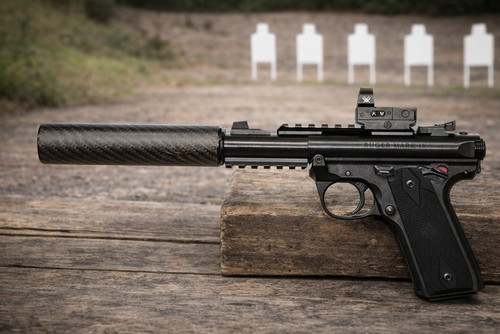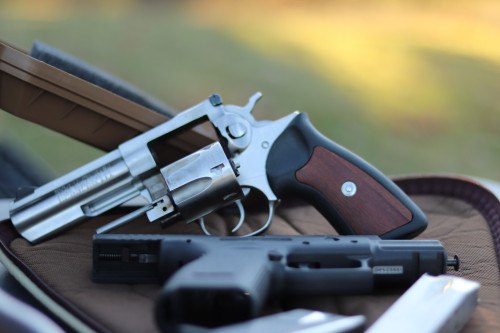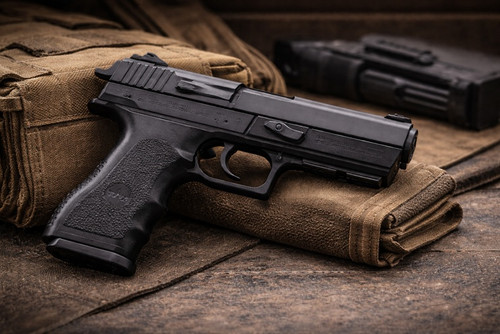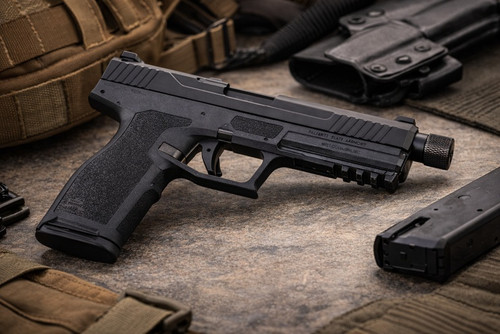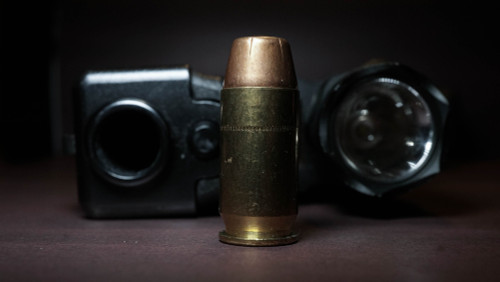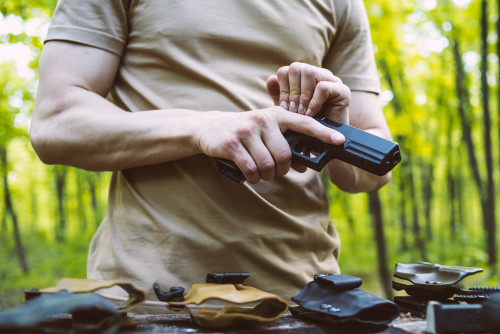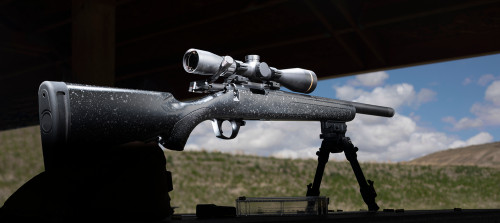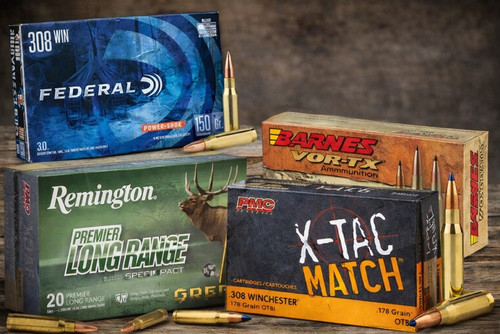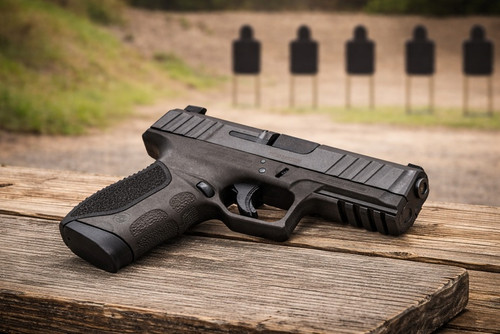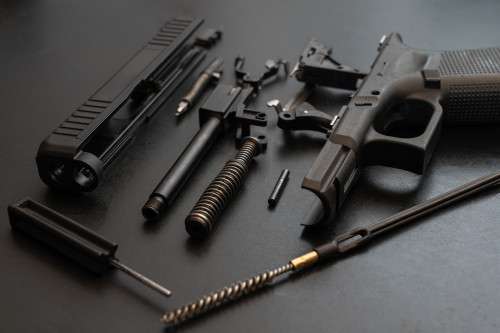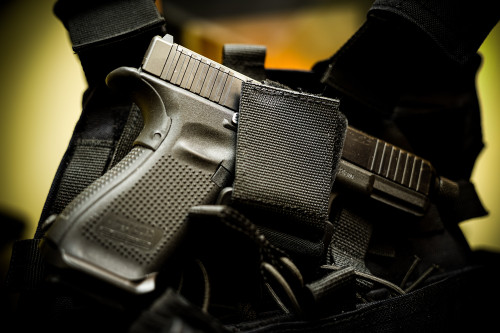Once you plunge down the muzzle brake rabbit hole, it’s easy to lose your way. In addition to the various designs available on the market, there is a slew of opinions online about what you should and shouldn’t use.
Muzzle brakes, flash hiders, and suppressors can all aid in recoil reduction, mitigate muzzle rise, and can affect your firearm’s report in various ways. However, few of these offer the combination of versatility, usefulness, and price that linear compensators do.
There is a lot to consider when it comes to buying the right linear muzzle compensator for your firearm, and we’re here to help you decide that. In this guide, we’ll help you learn what to look for when buying a linear compensator and break down our list of the best linear compensators on the market today.
What is a Linear Compensator?
A linear compensator (or linear comp, for short) is an accessory, typically for short-barreled rifles or rifle-caliber pistols. They direct the blast of a shot forward out of the barrel.
Short barreled rifles have a huge report. In other words, they make really loud booms and shoot fireballs. This is because not all of the powder in the cartridge has time to ignite before the bullet leaves the barrel. After the bullet leaves the barrel, there’s nothing holding the explosion of unignited powder within the barrel, so the leftovers burn off into the gun’s report. This is a huge disadvantage for everyone from competitive shooters to a hobbyist who enjoys shooting at an indoor range.
Linear compensators are a type of muzzle device that can help tame a short barreled rifle’s report. If you don’t have a rifle or rifle-caliber pistol with a short barrel, you generally don’t need a linear comp.
How Does a Linear Compensator Work?
The mechanism behind linear compensators is pretty simple — it projects a firearm’s blast forward and away from you. That’s in contrast to other muzzle devices, including:
- Muzzle brakes, which may redirect the blast up or to the side.
- Flash hiders, which cover up the visual fireballs from short-barreled guns.
- Silencers, which contain the expanding gas and sound to reduce it.
It’s important to note that a linear compensator doesn't actually reduce the noise of the gun, just projects it in a different direction. This means that they won’t reduce your report’s decibels, but your ears may not perceive the sound as being loud from your location. That’s why it’s always good to use ear protection when firing your gun.
Why Use a Linear Compensator?
Using a linear comp makes shooting a short-barrel style rifle or pistol a much more pleasant experience. Because the blast is redirected, your ears (and those of the people around you) will suffer way less every time you pull the trigger.
Some people will say that using a linear compensator will help reduce perceived recoil and muzzle rise. However, this is subjective in most cases. With that in mind, it may indeed reduce the perception of recoil for newer shooters (since they may flinch less when shooting the gun due to reduced sound).
Linear compensators are also not muzzle brakes, so a linear comp may be your only choice for a muzzle device if you live in a state that bans muzzle brakes. Still, muzzle breaks actually increase the perceived sound of your gun’s report. Linear comps might be a better choice in some situations.
What to Consider When Buying a Linear Comp
If you’re shopping for a linear comp, you’re going to have a lot of data and specs thrown at you. This can look like gibberish to the uninitiated. Fortunately, they’re pretty easy to understand. Here are the key factors to keep in mind when shopping for a linear compensator:
Caliber
Like any muzzle device, you need to choose a linear comp with a specific caliber in mind. Fortunately, many of these devices can work in conjunction with more than one caliber. Some common comps are .22 caliber (which work for 223, 556, 224, and others), along with 308/350 Legend (includes 7.62x39, 7.62x51, and more). If you’re familiar with silencers at all, you’re probably acquainted with these terms.
Material
The material that makes up a muzzle break will determine how rugged it is. Since this is going to be your rifle’s muzzle device, you want it to be highly durable. Damaging the end of a muzzle can cause protrusions that prevent a bullet from leaving the end of a barrel. This, in turn, can lead to catastrophic weapon failures as expanding gasses look for the easiest route to exit the barrel. In other words, your gun will blow up.
When shopping around, keep an eye out for linear compensators made of stainless steel. These will be hardy enough to stand up to almost any abuse.
Size and Weight
You’ll also want to consider weight when you’re buying a linear compensator. Weight can be a double edged sword with any muzzle device. That’s because adding extra weight to the end of a barrel can help reduce muzzle rise, but it will also make the gun heavier. The effect of a muzzle device’s weight on a firearm will increase proportionally to barrel length, since the barrel effectively acts as a lever arm.
In addition to weight, you’re going to want to keep an eye on your linear compensator’s size. When installing most linear comps, you’ll want to make sure that the business end peeks just a little bit past your handguard. In addition, you want to make sure the diameter is thin enough to not actually touch your handguard. If it does, you’ll ruin any of the benefits you might have obtained from a free-floating handguard (such as the ability to mount an optic). That’s particularly important for shorter-barreled guns, since rail space is at a premium.
Price
As always, you’ll want to keep price in mind. Unfortunately, when you’re shopping for firearms accessories, prices are usually fairly high. Linear comps, though, are often some of the least expensive muzzle devices out there. Just compare them to silencers — those things can cost much more than the gun you attach them to.
The 5 Best Linear Compensators for 2023
Now, let’s look at some of the best linear compensators on the market in 2023. While some of these comps may have particular advantages or disadvantages over one another, any of them would make a great addition to your short-barreled rifle or rifle-caliber pistol.
Ultradyne Athena Linear Comp
If you had to pick one linear comp to use forever, it’s hard to beat Ultradyne’s Athena. Like any linear comp, it vents gasses forward to protect users close to it from concussive muzzle blast. However, that’s barely scratching the surface. It also features indexing notches to install a front sight, which helps save handguard space and can lengthen sight radius.
If that’s not enough, this comp has actual superpowers — while most linear comps don’t actually reduce muzzle rise, the Athena is the exception that proves the rule. This comp funnels expanding gasses upwards before pushing them forward, which (according to Ultradyne) helps to modestly tame muzzle rise. This, in turn, makes follow up shots easier, since you don’t have to spend as much time re-aiming.
Note that the Athena comes in three different sizes: .223/556, .308/7.62, and .350 Legend. Make sure you purchase the right one for your particular rifle, or you’re gonna have a bad time when it arrives in the mail.
- Caliber: .223 (works with .223, 556, 224, and more) .308/7.62 and .350 Legend
- Weight: 3.8 ounces (comp only)
- Threading: 1/2x28 for .223 and .350 Legend (common for AR platform, not AK) and 5/8x24 for .308/7.62
- Material: Stainless Steel, Salt Bath Nitride finish
Hera Linear Comp Gen 2
The Hera Linear Comp Gen 2 improves on the first generation, featuring 30% less weight than its predecessor. It also has a thin outer diameter, so you don’t have to worry about it interfering with your handguards.
The Hera Linear Comps differ from a lot of the other compensators on this list because it’s not actually made from stainless steel. Instead, it’s constructed from 42CrM04, a steel alloy made from chromium and molybdenum coated in black nitride. This is a high-strength, engineering-grade alloy that’s particularly resistant to impact damage. As a result, you don’t need to worry about damaging it if you hit your muzzle device on most surfaces.
The Hera Linear Comp comes in two different sizes (223 and 7.62). In addition, these two comps each have different concentricities on their threading. That makes the 22 ideal for AR-15s, while the 7.62 is tailored for AR-10s. Make sure you’re buying the right sized comp for your gun!
- Caliber: 22 (works with .223, 556, 224, and more) and 7.62 (works with 7.62mm bullet diameters)
- Weight: 4.23 oz
- Threading: 1/2x28 for 22 (common for AR platform, not AK), 5/8x24 (common for AR-10)
- Material: 42CrMo4 with black nitride coating
Kaw Valley Precision Linear Compensator
Once you start diving into the world of linear comps, you’ll notice that one name keeps appearing: Kaw Valley Precision (KVP). The KVP Linear Comp is as close to the “industry standard” as it gets. Over the years, Kaw Valley has built a linear compensator for every caliber under the sun, from pistols to big-bore rifles.
Unlike many of the other options listed here, the KVP comp doesn’t just come in .22 and .30 caliber variants. You can also find it in 9mm, .45 ACP, .40 S&W, 10mm, .458 SOCOM, and 450 Bushmaster. That’s right, you can finally slap a linear comp on that short-barreled .458 SOCOM upper that draws so many angry looks at your local indoor range.
Here’s one more thing to love about the linear comp: the price. While high-end linear comps like the Athena and Hera each go for over $100, the KVP comp clocks in at just over $50 MSRP. That’s a huge benefit if you’re trying to build a short-barreled gun on a budget. Ultimately, if you go with the KVP Linear Compensator, you will not be disappointed.
- Caliber: .22, .30, 9mm, .45 ACP, .40 S&W, 10mm, .458 SOCOM, .450 Bushmaster
- Weight: 3.2 ounces
- Threading: 1/2x28 TPI (22 caliber), 5/8x24 TPI (6.5mm, 30 caliber, .45 ACP, .40 S&W, 10mm), 1/2x36 TPI (9mm), 18x1 (Gen 1 CZ Scorpion 9mm), 5/8x32 TPI (458 SOCOM), .578x28 TPI (.45 ACP), 9/16x24 TPI (.40 S&W)
- Material: Varies. Steel for rifle calibers and aluminum for pistol calibers.
TacFire Linear Compensators
We’re going to start this out by saying that the TacFire Linear Compensator may be one of the most affordable comps on this list. That doesn’t mean that these babies are cheaply made, though. Like some of the higher-end options on this list, TacFire comps are made from extremely durable stainless steel. You can even find black nitride coating options if you don’t want the end of your gun to be extra shiny.
TacFire also offers the second-largest variety of compensators in terms of caliber. You can find them in .22 and .30 caliber, along with 9mm. That covers most of the common pistol and rifle calibers available today. You can get all of that for about $30!
- Caliber: .22 (works with .223, 556, 224, and more), .30 caliber (works with 7.62mm bullet diameters), and 9mm
- Weight: 3.7 oz (.22 caliber and 9mm), 2.9 oz (.30 caliber)
- Threading: 1/2x28 (.22 caliber), 5/8x24 (.30 caliber), 1/2x36 (9mm)
- Material: Stainless steel (also available with black nitride coating)
Troy Claymore Linear Comp
Troy Industries really went lights-out with their Claymore Linear Comp. This thing pushes the limits of what a linear compensator can do, and it’s got style to boot.
For the unaware, Troy gets the name for its Claymore Linear Comp from the anti-personnel Claymore mine. These are a pretty iconic piece of ordnance, with the legendary phrase “front towards enemy” printed on them. Troy makes a playful nod to this linear comp’s namesake by printing the same phrase on each of these muzzle devices.
It’s not just about the drip with Troy, though. It has some features that other linear comps on this list don’t feature. For one, the pointed teeth on the business end of the compensator are designed to aid in breaching doors. If you ever find yourself in this situation, you’ll probably be glad you have this thing. They’re also designed to kick dust and debris away from the shooter, making it easier to maintain focus on your target when firing from a prone position.
- Caliber: .22 (works with .223, 556, 224, and more), .30 caliber (works with 7.62mm bullet diameters)
- Weight: 4.8 ounces
- Threading: 1/2x28 (22 caliber), 5/8x24 (30 caliber)
- Material: Heat-treated ordnance steel
Find Your Perfect Linear Comp at Pro Armory
If you’re tired of flinching in terror each time your finger tightens around the trigger of your short-barreled gun, it may be time to consider a solution. For an affordable, durable, and effective solution, linear compensators are some of the best choices out there. Remember that linear comps aren’t always perfect for every situation — make sure that you’re choosing a muzzle device that achieves your goals.
If you’re ready to take the plunge into the world of muzzle devices, start with a linear compensator. To find the right one for you, check out all the ones we have in stock here at Pro Armory. With a huge selection of ammo and accessories for rifles and handguns, along with a dedicated team of gun-savvy veterans, we’re standing ready to help connect you with the best products in the world of firearms.
Find the perfect accessories for your firearms at a reasonable price — shop Pro Armory today.



